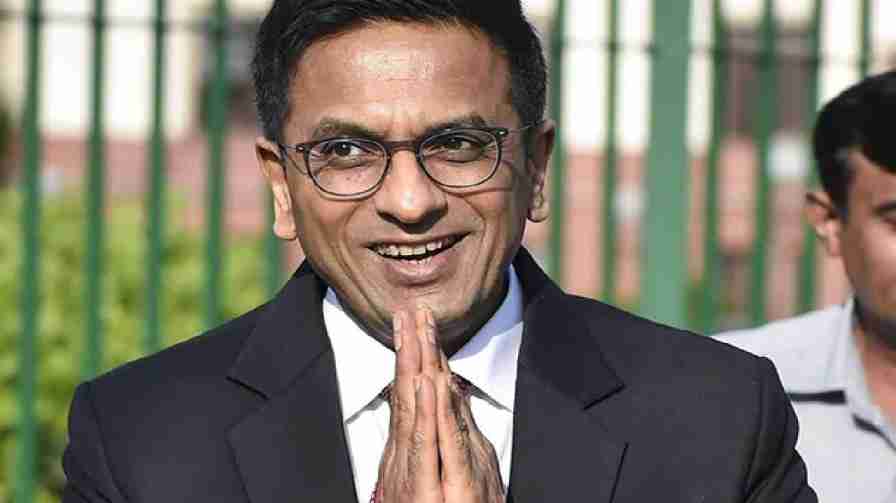Chief Justice of India DY Chandrachud, while addressing the Shanghai Cooperation Organisation (SCO) members in a meeting hosted by the Supreme Court of India, on Friday said that the pandemic forced the judicial system to adopt modern methods to impart justice. The Supreme Court of India on Friday hosted the eighteenth meeting of Chief Justices and Chairperson of the Supreme Court of SCO members, which begins today.
The meeting will be continued tomorrow as well. The delegates of various countries, who are members of the SCO joined the meeting whereas delegates of Pakistan did not attend the meeting physically but asked for a link to join it online, according to sources. Chief Justice of India DY Chandrachud, who participated in the event, said that India followed the unified and integrated system of the judiciary with the apex court at the top, followed by High Courts in each state, and various other courts at the district and local levels.
The CJI said that the country faced various challenges faced by the judicial system during the COVID-19 pandemic. He said that lockdowns and social distancing during the pandemic disturbed the smooth day-to-day functioning of the courts and the entire justice delivery system in India.
“Physical appearances in courts by the lawyers and litigants were disallowed due to strict safety protocols for COVID-19,” he said. “The pandemic forced the judicial system to adopt modern methods to impart justice. But our goal must lie in evolving our judicial institutions as a matter of principle, and not wait for another pandemic to take active decisions,” the CJI added.
CJI said that the Supreme Court of India prepared a roadmap and came up with various initiatives and among them was accelerating the move towards e-courts and adoption of a systematic approach towards technological integration, through which virtual hearings were started in the Indian judicial system for the very first time. “The rapid response of the Supreme Court in adopting technology and devising e-courts, online hearings via video conferencing, standard operating procedure for urgent hearings, live streaming, and e-filing ensured that the interruption in the court functioning was brief,” the CJI said.
CJI also remarked that the incorporation of technology in the Indian judicial system has not only made the judicial institutions more accessible for all its citizens but it has also acted as a tool to reach out to those who lack access to technology. The Supreme Court also has started live streaming of constitutional cases, utilising AI software for live transcription of hearings and translation of judgments in multiple languages and this shall ensure transparency in judicial proceedings, CJI said.
According to a press statement released yesterday, Chief Justices and Chairpersons of the Supreme Courts of Shanghai Cooperation Organisation (SCO) Member States have been invited to attend the Meeting. The meeting is likely to witness discussions on “Smart Courts” and the future of the Judiciary ; Facilitating “Access to Justice”; Institutional Challenges facing the Judiciary: Delays, Infrastructure, Representation, and Transparency. The Shanghai Cooperation Organisation was created in 2001 on the basis of the “Shanghai Five” formed after the signing by Kazakhstan, Kyrgyzstan, China, Russia and Tajikistan.
The main goal of SCO is to strengthen mutual trust, friendship and good neighbourliness, encouraging effective cooperation in several areas among the member states. SCO members include China, India, Kazakhstan, Kyrgyzstan, Pakistan, Russia, Tajikistan and Uzbekistan.
Afghanistan, Belarus, Iran and Mongolia constitute the SCO observers while Armenia, Azerbaijan, Cambodia, and Nepal are the SCO dialogue partners: The SCO Charter, the regulations on meetings of heads of ministries and/or departments of the SCO Member States, the rules of procedure of the Presidents of the Supreme Courts of the SCO Member States, and the SCO Rules of procedure regulate the activities of the Meeting of the Presidents of the Supreme Courts (MPSC). Meeting of the Presidents of the Supreme Courts allows for a constant dialogue on a wide range of issues, giving a new impetus to the development of relations and allowing the development of mechanisms for further improving the work of the judiciary.
The first Meeting was held on 22 September 2006 in Shanghai (People’s Republic of China). Since then, the institute of interaction between the Chief Justices of the Supreme Courts has occupied a special place in the Organization, significantly complementing an establishedunique practice of cooperation. The seventeenth meeting of the Presidents of the Supreme Courts of the Member states of the SCO was held in Dushanbe. India assumed the rotational presidency of the Shanghai Cooperation Organization for a year in September 2022 through the Samarkand declaration last year.
Pakistan on Thursday announced its decision to skip the meeting of Chief Justices of the Shanghai Cooperation Organisation (SCO) scheduled in New Delhi from March 10-12, reported The Express Tribune.


















